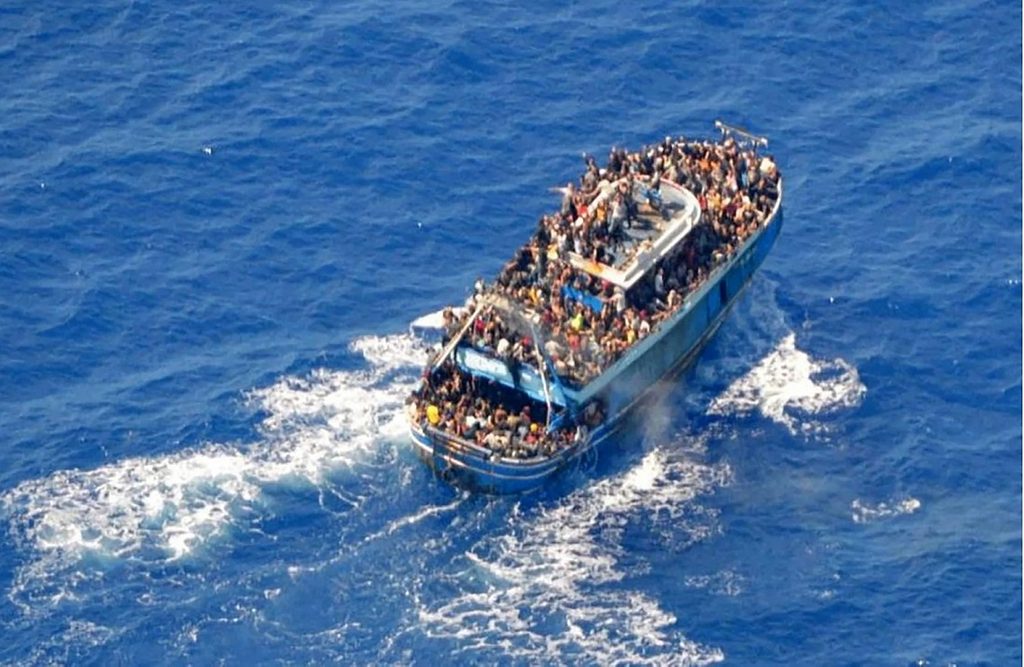The inquiry was launched by the Ombudsman in July and continued last week with the inquiry team meeting the European Border and Coast Guard Agency (Frontex) at its headquarters in Warsaw to clarify the answers sent by the agency and for inspection of additional documents.
The European Ombudsman opened an own-initiative inquiry to assess how Frontex ensures the respect of fundamental rights in the context of search and rescue missions (SAR) in the maritime operations in the Mediterranean Sea. The inquiry followed the shipwreck which occurred near the Greek coast on 14 June. The shipwreck was the deadliest one in the Mediterranean Sea in years.
A spokesperson for the Ombudsman told The Brussels Times that it is difficult to say when the inquiry will be finalised as it depends on the information that the inquiry team will receive from Frontex. What started with a list of questions to Frontex has developed into a kind of audit with follow-up questions and further data collection on the spot.
The Ombudsman requested details about how information about search and rescue operations is shared between Frontex and national authorities and whether Frontex has a say on how these operations are designed or implemented.
While the decision on whether to start a rescue operation is in the hands of national governments, Frontex plays a crucial role in detecting boats at sea in distress and providing real-time information analysis to member states during patrols. National experts work together at the European Monitoring Room in Warsaw to monitor incoming information.
Frontex executive director Hans Leijtens, a senior Dutch official who was appointed last December, declared that he welcomed the inquiry and will cooperate in full transparency to explain the role Frontex plays in search and rescue operations. "Although we do not coordinate SAR operations, saving lives at sea is essential,” he said. “We provide support to national authorities when needed.”
The agency was managed by an interim director in 2022 after its former director had been forced to resign after alleged pushbacks of migrants seeking asylum in the EU. At his appointment, Leijtens underlined the need to restore trust in Frontex and deliver tangible results in its main task defending EUs external borders.
How proactive is Frontex?
Judging by Frontex’ replies (dated 3 November), Frontex supports the national authorities in SAR operations but does not play a major role. “Frontex does not have a substantial input into the design or organisational implementation of SAR operations,” the EU agency replied. The response was partly redacted at the proposal of Frontex.
The operations are coordinated by the MRCC (Maritime Rescue Coordination Centre) but Frontex assets might be requested to take part in the implementation of the SAR activities.
On a direct question if Frontex is proactively engaged in SAR activities and delivering persons in distress to a place of safety, the EU agency replied that, “In all SAR cases, Frontex assets always operate under the coordination of the competent MRCC of the national authorities, receiving instruction after the detection of a possible SAR case or being tasked to take part in a SAR activity.”
Member State authorities assume responsibility and coordination of SAR operations of migrant boats in distress sighted by the Agency's assets inside their Search and Rescue Region and ensure the identification of a safe port of disembarkation.
But national authorities can do more to engage Frontex. According to Frontex, the authorities are aware of Frontex activities within the area of a SAR event and might engage an (Frontex) asset (aircraft or vessel) anytime it is considered necessary. Frontex makes sure that national authorities are aware of the availability, location, size and technical specifications of each deployed asset.
Frontex also replied that it was not aware of any internal reports detailing instances where instructions issued to staff involved in SAR operations by the host Member States were not in compliance with fundamental rights.
The role of the European Commission is outside the inquiry. When the shipwreck occurred, the Commission referred to the European Contact Group on Search and Rescue. Established in December 2020, the group is a body for coordination and information exchange between the EU member states in the field of search and rescue.
In parallel, the Greek authorities have also launched an investigation which has not yet been finalized. Frontex does not carry out any investigations on its own but could provide input to them. “Serious Incident Reports are shared with relevant national authorities and may serve as supporting documents during investigations conducted by national authorities,” according to a press officer at Frontex.
M. Apelblat
The Brussels Times

